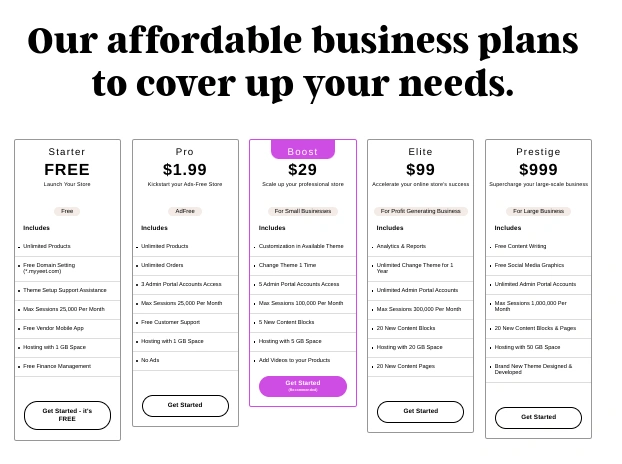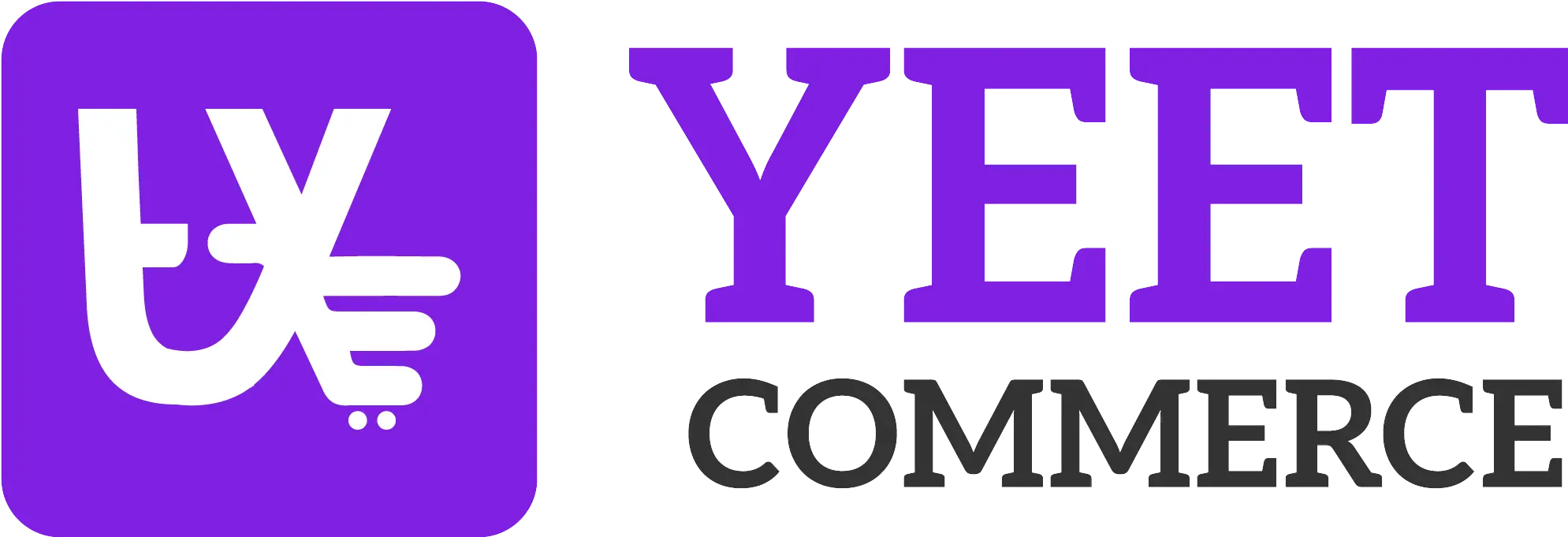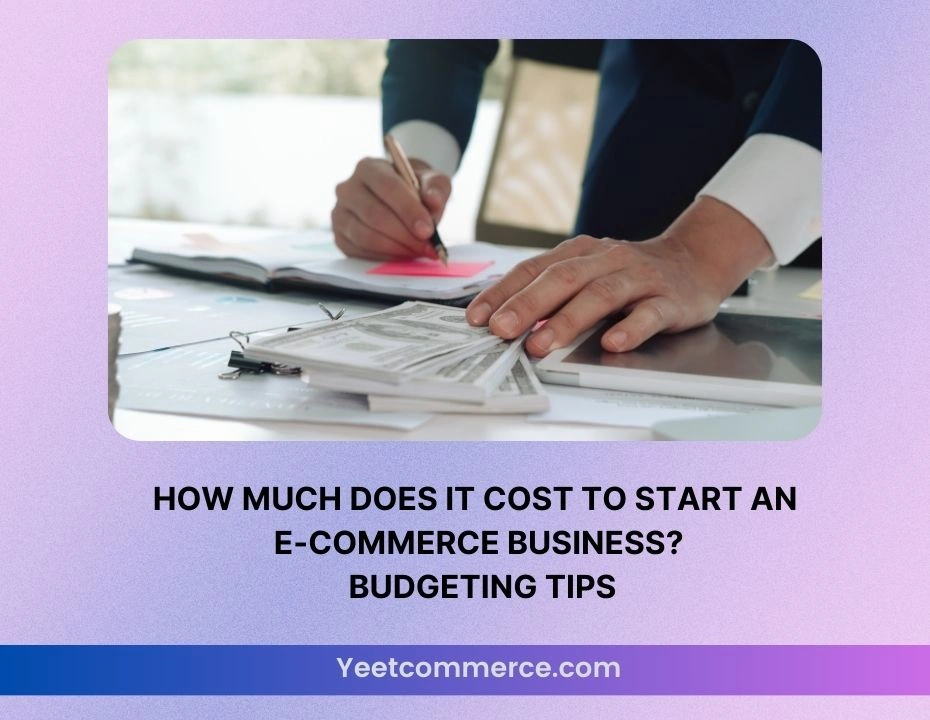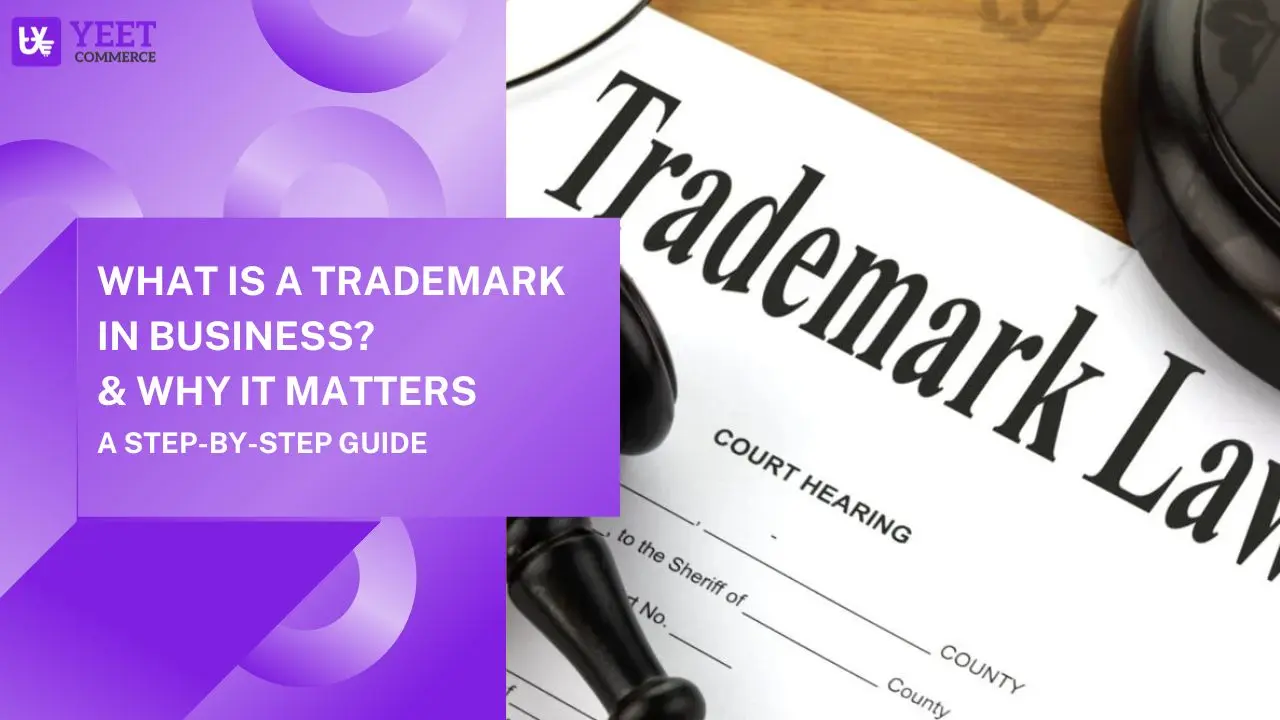Starting an eCommerce business is an exciting venture that requires careful financial planning. Understanding the initial investments can make the difference between success and struggle. In this section, we’ll break down the essential costs you’ll encounter, helping you answer the burning question: how much money needs to start an eCommerce business?
Domain and Hosting: Your Digital Address
The first cost you’ll encounter is securing your digital address. Think of your domain name as the street address of your online store. You want it to be memorable, relevant, and easy to spell. Domain registration typically costs between $10 and $50 per year. While this might seem like a small investment, choosing the right domain name can significantly impact your brand’s visibility and credibility.
Once you have your domain, the next step is web hosting. Hosting is akin to renting space on the internet where your store will live. Depending on the hosting provider and plan you choose, costs can range from $3 to $300 per month. For most new eCommerce businesses, a basic shared hosting plan, which costs around $10 per month, will suffice. However, as your business grows, you might need to upgrade to more robust hosting solutions.
Website Development: Building Your Online Storefront
The next major investment is website development. This step involves creating a user-friendly and visually appealing online storefront. You have a few options here: you can build the website yourself using a platform like YeetCommerce or WordPress, or you can hire a professional web developer. If you opt for a DIY approach with a platform like YeetCommerce, you can start for free, with paid plans ranging from $29 to $79 per month as your needs grow. These platforms often include themes, plugins, and support, making them a cost-effective option for beginners.
If you decide to hire a professional, the costs can vary widely based on the complexity of your site and the developer’s expertise. Basic eCommerce websites typically start at around $500, but more complex sites with custom features can easily run into the thousands. While this might seem steep, a professionally designed website can enhance user experience and boost sales, making it a worthwhile investment.
Inventory and Suppliers: Stocking Your Virtual Shelves
Once your website is up and running, you’ll need products to sell. Initial inventory costs can vary greatly depending on the type of products you plan to offer. If you’re sourcing products from wholesalers or manufacturers, you’ll need to purchase stock upfront. This initial outlay can range from a few hundred to several thousand dollars, depending on your product range and order quantities.
To minimize initial investment, consider starting with a small, focused inventory. This approach allows you to test the market and adjust your offerings based on customer demand. Additionally, you might explore dropshipping, a method where you only purchase products after you’ve made a sale. This significantly reduces upfront costs since you don’t need to hold inventory.
Marketing and Advertising: Attracting Your First Customers
With your store stocked and ready, the next step is attracting customers. Digital marketing is crucial for driving traffic to your eCommerce site. You should budget for various marketing activities, including social media advertising, search engine optimization (SEO), and email marketing.
Social media advertising is a popular choice for new eCommerce businesses. Platforms like Facebook and Instagram allow you to target specific demographics, making your advertising dollars more effective. Expect to spend at least $200 to $500 per month on social media ads to see meaningful results. SEO is another essential investment, helping your site appear in search engine results. While you can learn and implement basic SEO strategies yourself, hiring an SEO expert might cost you around $500 to $1,000 per month.
Payment Processing and Security: Ensuring Smooth Transactions
A seamless payment process is crucial for any eCommerce business. You’ll need a reliable payment gateway to handle transactions securely. Popular options include PayPal, Stripe, and Square, each charging a small fee per transaction, typically around 2.9% plus $0.30. While these fees might seem minimal, they can add up, especially as your sales volume increases.
Security is another critical aspect. Investing in an SSL certificate is essential to protect your customers’ data and build trust. SSL certificates cost between $10 and $200 per year, depending on the level of encryption and warranty. Many hosting providers offer free SSL certificates, which can be a great way to save on initial costs.
Legal and Administrative Costs: Keeping It Legit
Finally, don’t overlook legal and administrative costs. Registering your business, obtaining necessary licenses, and setting up tax accounts are all part of the process. Business registration fees vary by state and country but generally range from $50 to $500. Additionally, consulting with a legal professional to ensure your business complies with all regulations might cost between $100 and $300 per hour.
In summary, the initial investment required to start an eCommerce business can vary widely based on several factors. At the lower end, you might get started with a few hundred dollars by leveraging DIY tools and dropshipping. However, for a more polished and robust setup, you should expect to invest a few thousand dollars. Careful planning and smart choices can help you manage these costs effectively, paving the way for a successful online venture.
Affordable Platforms to Consider: YeetCommerce
Starting an eCommerce business can feel overwhelming, especially when considering the myriad of platforms available. With so many choices, how do you know which one is right for you? In this section, we’ll explore YeetCommerce, one of the most affordable and user-friendly platforms, helping you decide how much money needs to start an eCommerce business. Let’s dive into the details of YeetCommerce and see how it can help you launch your online store without breaking the bank.

YeetCommerce: The All-In-One Solution
YeetCommerce is quickly becoming one of the most popular eCommerce platforms, known for its ease of use and comprehensive features. With YeetCommerce, you can get your store up and running quickly, even if you have no technical expertise. Plans start at just $25 per month, making it a budget-friendly option for new entrepreneurs.
YeetCommerce offers a variety of customizable templates, allowing you to create a professional-looking store with minimal effort. Additionally, it provides a robust set of tools for inventory management, marketing, and analytics, ensuring you have everything you need to succeed. The platform also supports multiple payment gateways, making it easy for customers to purchase from your store.
If you’re looking for a hassle-free way to start your eCommerce business, YeetCommerce is a fantastic choice. The platform’s user-friendly interface and extensive support resources make it an ideal starting point for beginners.
Flexibility and Control
YeetCommerce offers powerful customization options, giving you flexibility and control over your online store. Since YeetCommerce is designed to be user-friendly, it’s accessible to those with little to no coding experience. However, it also offers advanced features for those who want to delve deeper into customization.
One of the main advantages of YeetCommerce is its range of themes and plugins, allowing you to create a unique shopping experience tailored to your brand’s needs. This means you can build a store that stands out and appeals directly to your target audience.
With YeetCommerce, you have complete control over your store’s functionality and design. The platform’s flexibility allows you to scale and adjust as your business grows, making it a versatile choice for long-term success.
Scalability for Growing Businesses
YeetCommerce is designed to support businesses of all sizes, offering robust features and scalability for growing enterprises. The platform’s affordability and extensive feature set make it a competitively priced option for those starting out and looking to expand.
YeetCommerce stands out for its strong SEO capabilities, which can help drive traffic to your store. The platform also offers a wide range of built-in features, including abandoned cart recovery, multi-channel selling, and advanced analytics. These tools can help you manage and grow your business efficiently.
If you anticipate rapid growth and need a platform that can scale with your business, YeetCommerce is a great choice. Its extensive feature set and focus on SEO make it a powerful ally in your eCommerce journey.
Design-Centric Simplicity
YeetCommerce is known for its stunning design templates and intuitive interface, making it a popular choice for creatives and small businesses. While not as feature-rich as some other platforms, YeetCommerce offers all the essential tools you need to run a successful online store.
Plans start at $25 per month for the basic eCommerce plan, which includes unlimited products, inventory management, and customer accounts. YeetCommerce also provides excellent customer support, with 24/7 assistance available via live chat and email.
If design is a priority for your brand and you want a straightforward, aesthetically pleasing platform, YeetCommerce is worth considering. Its user-friendly interface makes it easy to build a beautiful store without any coding knowledge.
Versatile and Beginner-Friendly
YeetCommerce is a versatile website builder that offers powerful eCommerce capabilities. Its drag-and-drop interface makes it incredibly easy to use, even for those with no technical background. YeetCommerce’s eCommerce plans start at $25 per month, providing a cost-effective solution for new online businesses.
With YeetCommerce, you can choose from a wide range of professionally designed templates and customize them to suit your brand. The platform also includes essential eCommerce features like inventory management, secure payments, and shipping options.
YeetCommerce’s simplicity and affordability make it an excellent choice for beginners looking to start an eCommerce business. Its comprehensive support and extensive app market allow you to enhance your store’s functionality as your business grows.
Hidden Costs You Might Overlook
Starting an eCommerce business can be an exhilarating journey, filled with the promise of financial independence and creative fulfillment. However, it’s crucial to be aware of hidden costs that might catch you off guard. Let’s explore some often-overlooked expenses you might encounter when using YeetCommerce, ensuring you have a realistic understanding of how much money needs to start an eCommerce business.
Transaction Fees: The Silent Profit Eater
When you set up your YeetCommerce store, you’re likely focused on sales, inventory, and marketing. However, transaction fees can quietly eat into your profits. Most payment gateways, such as PayPal and Stripe, charge a fee for each transaction processed through your store. Typically, these fees range from 2.9% to 3.5% per transaction, plus a fixed fee of around $0.30.
While this might seem small, it can add up quickly, especially as your sales volume increases. To mitigate this cost, consider offering multiple payment options and looking for payment processors with lower fees. YeetCommerce supports a variety of payment gateways, giving you the flexibility to choose the most cost-effective option.
Apps and Plugins: Enhancing Your Store at a Price
YeetCommerce provides a robust set of features, but as your business grows, you might find yourself needing additional functionalities. This is where apps and plugins come into play. From advanced analytics and customer service tools to marketing automation and SEO enhancements, these add-ons can significantly boost your store’s performance.
However, many of these apps come with a price tag. While some are free, others can cost anywhere from a few dollars to several hundred dollars per month. It’s essential to budget for these additional costs and prioritize which apps are truly necessary for your business’s success.
Shipping Costs: Delivering More Than Just Products
Shipping is a critical aspect of your eCommerce business that can be easily overlooked when budgeting. Beyond the actual cost of shipping products to customers, there are several hidden expenses to consider. Packaging materials, insurance, and potential shipping software subscriptions can all add to your costs.
YeetCommerce integrates with various shipping solutions, helping you streamline this process. However, it’s vital to research and choose the most cost-effective shipping options for your products. Offering free shipping can be a great way to attract customers, but you need to ensure it doesn’t eat too much into your profit margins.
Returns and Refunds: Preparing for the Inevitable
No matter how great your products are, you’ll inevitably face returns and refunds. Handling these efficiently is crucial for maintaining customer satisfaction, but it can come at a cost. You might need to cover return shipping, restocking fees, or even absorb the cost of damaged goods.
Setting up a clear return policy and factoring in potential return costs into your pricing strategy can help mitigate these expenses. YeetCommerce allows you to manage returns seamlessly, but being prepared for these scenarios financially is key to maintaining a healthy bottom line.
Marketing Costs: More Than Just Ads
Marketing is essential to driving traffic and sales to your YeetCommerce store. While you might budget for obvious costs like social media ads and Google AdWords, there are other marketing expenses that can creep up. Content creation, influencer partnerships, and email marketing tools can all add to your costs.
Investing in high-quality content and strategic marketing campaigns is crucial, but be sure to allocate enough funds to cover these ongoing expenses. YeetCommerce offers built-in marketing tools, but you might find yourself needing additional services to reach your business goals.
Website Maintenance: Keeping Your Store Running Smoothly
Running an eCommerce store isn’t a set-it-and-forget-it endeavor. Regular maintenance is required to keep your website running smoothly and securely. This can include software updates, security measures, and occasional troubleshooting. While YeetCommerce simplifies many aspects of website management, there are still costs associated with maintaining a professional online presence.
Consider setting aside a budget for unexpected technical issues or hiring a developer for occasional maintenance tasks. Keeping your store in top shape ensures a smooth shopping experience for your customers, which can lead to higher sales and customer retention.
Legal and Accounting Fees: Staying Compliant and Organized
Compliance with legal and financial regulations is non-negotiable for any business. You might need to consult with a lawyer to ensure your store complies with local and international laws, especially if you’re selling globally. Additionally, hiring an accountant to manage your finances can save you time and prevent costly mistakes.
These professional services can be pricey, but they’re necessary investments to protect your business. YeetCommerce provides resources to help you stay compliant, but it’s wise to budget for expert advice when needed.
Budgeting Tips for Aspiring Entrepreneurs
Starting an eCommerce business is an exciting adventure, but it requires careful financial planning. How much money needs to start an eCommerce business? This question often stumps many aspiring entrepreneurs. With YeetCommerce, you can launch your online store without breaking the bank, but smart budgeting is essential. Let’s dive into some practical budgeting tips to help you manage your finances and set your business up for success.
Start Small and Scale Gradually
One of the biggest mistakes new entrepreneurs make is trying to do too much too soon. It’s tempting to launch with a vast inventory and a fancy website, but starting small can be more sustainable. Begin with a limited product range that you know well. This approach minimizes initial costs and reduces the risk of unsold inventory.
YeetCommerce makes it easy to add new products as your business grows. By starting small, you can test the market, gather customer feedback, and adjust your offerings without significant financial pressure. Scaling gradually also allows you to invest profits back into your business, supporting sustainable growth.
Leverage Free and Affordable Resources
There’s no need to spend a fortune on tools and resources when you’re just starting out. YeetCommerce offers a variety of free and affordable features that can help you build and manage your online store effectively. Take advantage of free themes and plugins to enhance your website without extra costs.
Additionally, numerous online resources can help you with marketing, SEO, and social media strategies at no cost. Websites like Canva offer free graphic design tools, while platforms like Mailchimp provide free email marketing services up to a certain limit. Utilizing these resources can help you keep costs down while still presenting a professional image.
Monitor Your Cash Flow Closely
Keeping a close eye on your cash flow is crucial for the health of your business. This means tracking every expense and ensuring that your revenue consistently exceeds your costs. Use YeetCommerce’s built-in analytics to monitor your sales and expenses in real-time.
Create a detailed budget and update it regularly. Include all potential costs, such as inventory, marketing, shipping, and transaction fees. Regularly review your budget to see where you can cut costs or reallocate funds. By staying on top of your finances, you can avoid cash flow problems and make informed decisions about your business’s future.
Set Aside Funds for Unexpected Expenses
Even the best-laid plans can encounter unexpected bumps in the road. It’s wise to set aside a portion of your budget for unforeseen expenses. This could include unexpected increases in shipping costs, returns, or technical issues that require professional assistance.
Having a financial cushion can help you navigate these challenges without jeopardizing your business. Aim to save at least 10% of your monthly revenue for emergencies. YeetCommerce’s efficient cost structure allows you to save more by minimizing unnecessary expenses, helping you build a solid financial buffer.
Invest in Marketing Wisely
Marketing is essential to attract customers to your YeetCommerce store, but it doesn’t have to be expensive. Focus on cost-effective marketing strategies that offer a high return on investment. Social media marketing, content marketing, and email campaigns can be highly effective without breaking the bank.
Start by identifying where your target audience spends their time online and tailor your marketing efforts to those platforms. Utilize YeetCommerce’s built-in marketing tools to create campaigns, track their performance, and adjust your strategies accordingly. Consistent, focused marketing efforts can drive traffic to your store and increase sales without a huge budget.
Optimize Your Inventory Management
Efficient inventory management can save you money and improve your cash flow. Overstocking can tie up valuable capital, while understocking can lead to missed sales opportunities. Use YeetCommerce’s inventory management tools to keep track of your stock levels, set reorder points, and forecast demand accurately.
Consider implementing a just-in-time inventory system, which allows you to order products only as they’re needed. This approach minimizes storage costs and reduces the risk of excess inventory. Regularly review your inventory data to make informed decisions about your stock levels and purchasing strategies.
Utilize Customer Feedback
Listening to your customers can provide valuable insights and save you money. Encourage customers to leave reviews and provide feedback on their shopping experience. YeetCommerce makes it easy to collect and analyze customer feedback, helping you identify areas for improvement.
By addressing customer concerns and preferences, you can improve your products and services, leading to higher customer satisfaction and repeat business. Happy customers are more likely to recommend your store to others, providing free word-of-mouth marketing.
Conclusion:
Choosing the right eCommerce platform is crucial for your business’s success, and YeetCommerce offers unique advantages tailored to different needs and budgets. Whether you prioritize ease of use, design flexibility, or scalability, YeetCommerce can help you launch your online store. Initial costs vary based on the platform and additional features, so carefully consider your requirements and explore YeetCommerce’s affordable options to find the perfect fit.
Awareness of hidden costs, such as transaction fees, apps, shipping, and marketing, is essential for long-term success. Plan for these expenses and manage your budget wisely to avoid financial surprises. Starting small, leveraging free resources, monitoring cash flow, and setting aside funds for unexpected costs can help manage finances effectively. Investing in cost-effective marketing, optimizing inventory management, and using customer feedback for improvement are also crucial strategies.
By understanding and planning for both visible and hidden costs, you can start your eCommerce journey with confidence. Happy selling, and may your YeetCommerce venture be profitable and rewarding!


















